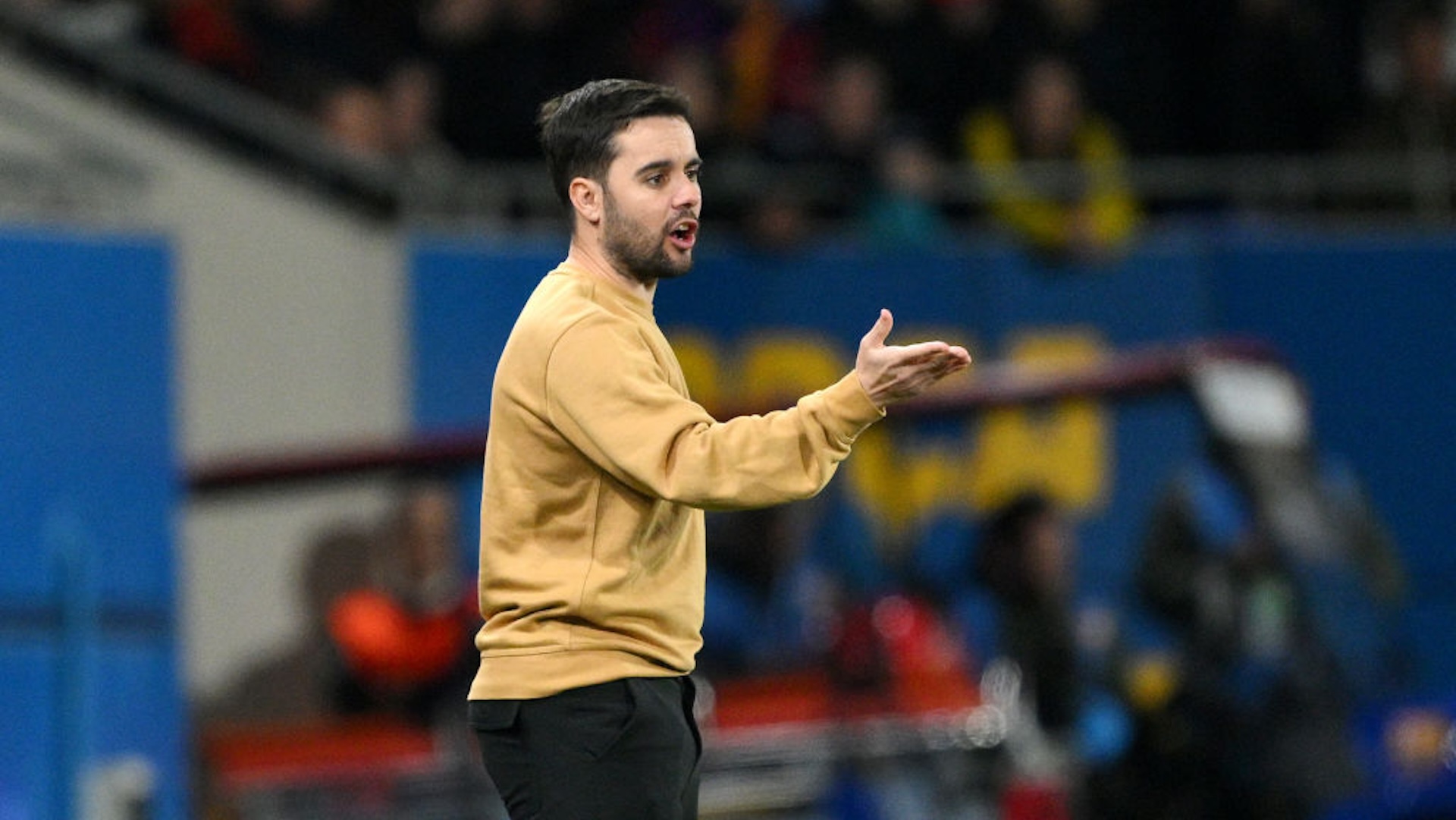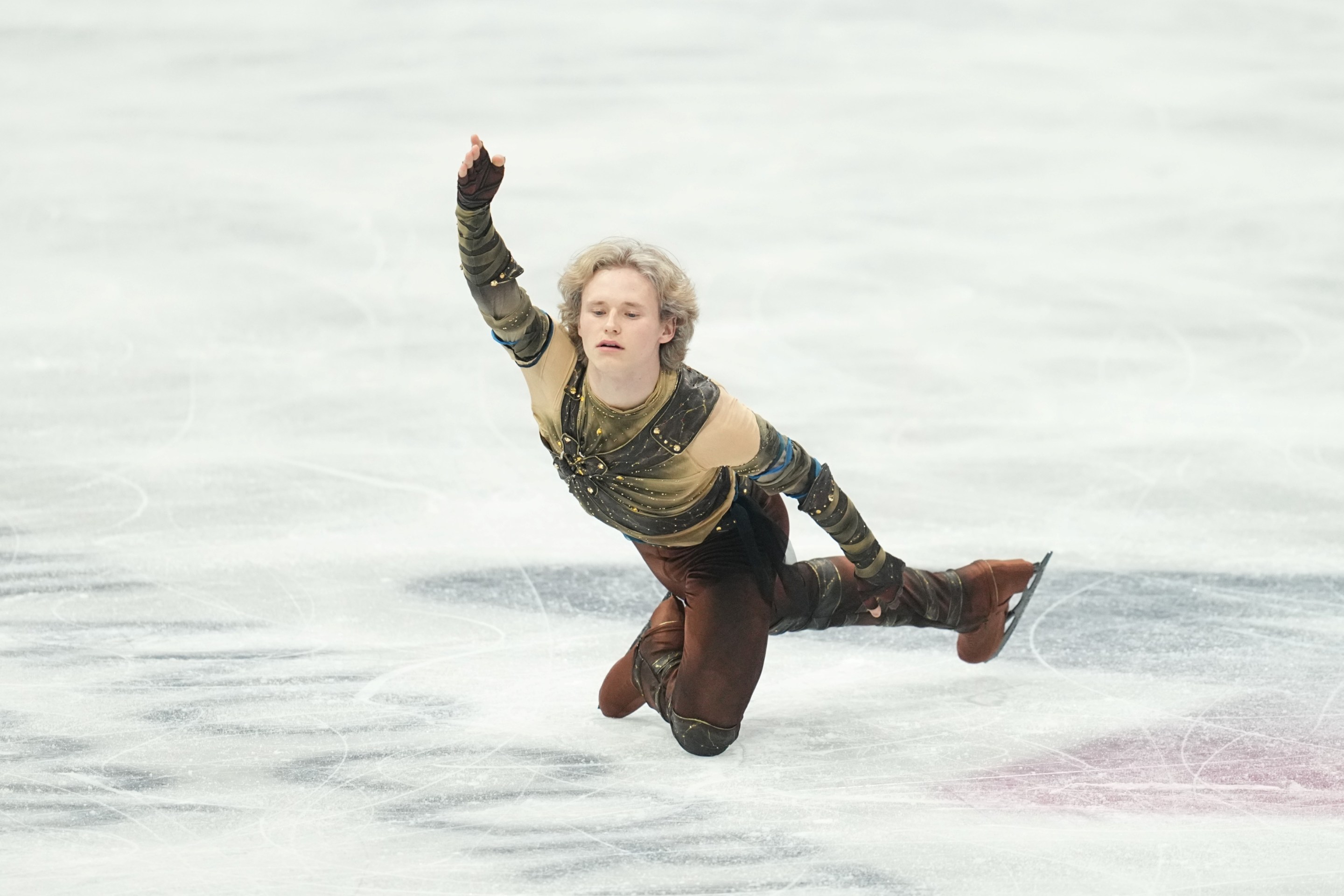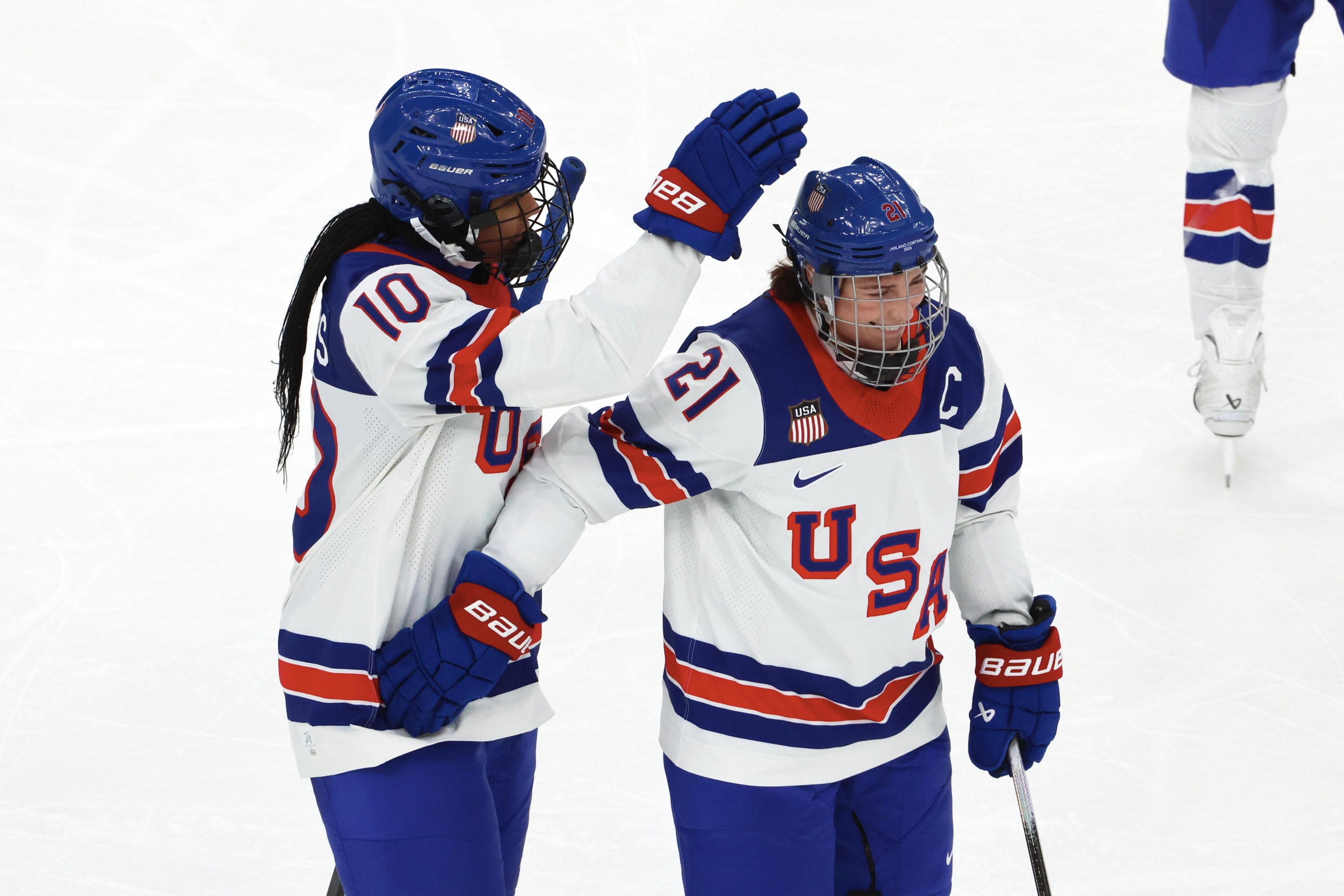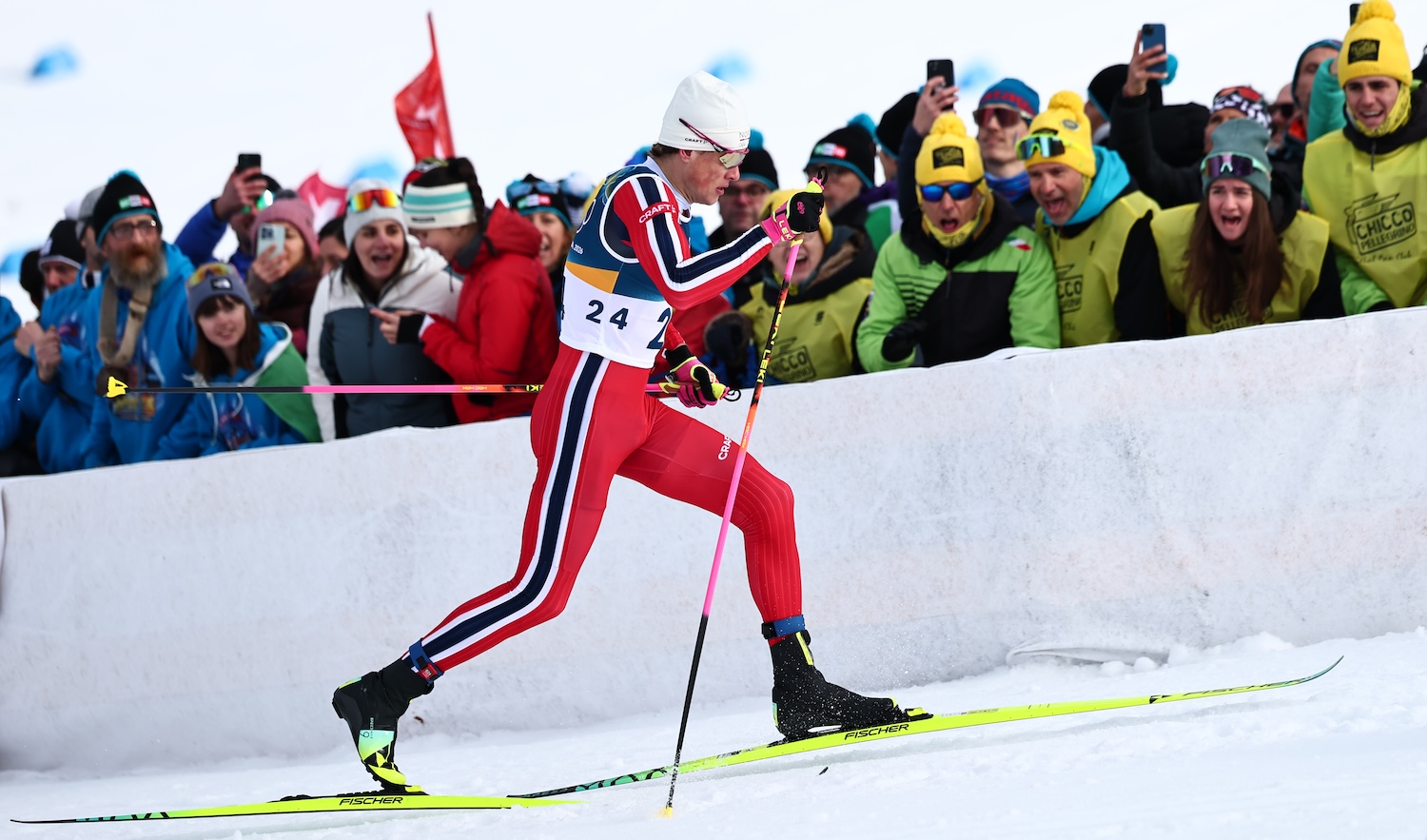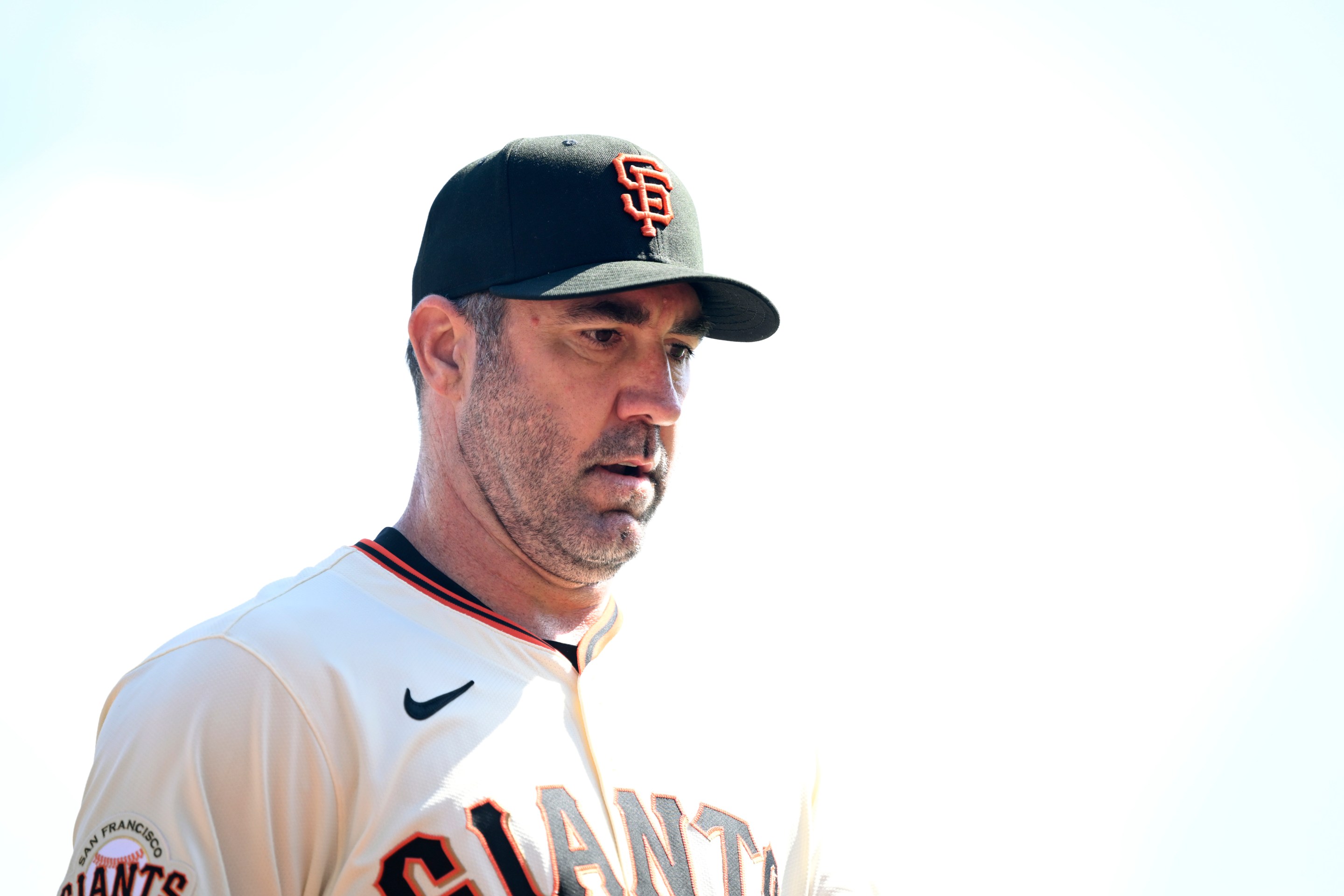In mid-December, Barça Femení coach Jonatan Giráldez announced that he would be leaving the club after the expiration of his current contract on June 30, 2024. Before anyone had much time to process the shock of that announcement, the NWSL’s Washington Spirit hit us with another on Jan. 9: Giráldez will be assuming coaching duties for the Spirit as soon as he departs Barça Femení.
Giráldez is just the latest coach to give up a place at a prestigious and successful European club for a job stateside. He’s following Emma Hayes, who will soon leave WSL powerhouse Chelsea for a job coaching the U.S. Women’s National Team. Of these two defections, Giráldez’s raises the most questions. Why would a wildly successful young coach willingly step away from the sport’s preeminent juggernaut to take over a midtable NWSL side?
Money is certainly an answer. Though no official figures have been revealed, reporting suggests Giráldez’s salary will be quintupled in Washington. More important than the money itself is what it symbolizes—what it says about where Giráldez has been and where he still wants to go.
Giráldez, 32, began studying to become a manager when he was 20 years old. After working his way up the ranks at the youth level and as an assistant, he landed the Barça Femení job just before the start of the 2021 season. His two-plus seasons in charge have been nothing short of breathtaking. Under Giráldez, Barça Femení has won 105 of 111 Liga F, Champions League, Copa de la Reina, and Supercopas de España matches, with no losses at home, during which they’ve scored 484 goals and conceded 48. They’ve won a pair of league titles (No. 3 is incoming), three Supercopas, a second Champions League (with another trip to the final), and one Copa de la Reina (they were disqualified last year for fielding an ineligible player).
Along the way, Alexia Putellas won a second consecutive Ballon d’Or. Aitana scooped up the next one. Now, Caroline Grahan Hansen is in the midst of a mind-melting level-up that has to have already sewn up the next one for her.
In many ways, Giráldez has been the perfect manager for this version of Barça Femení, which requires a manager who is not only sufficiently obsessive, but capable of navigating the unique challenge of cohering a group of singular apex predators into an effective team. Giráldez’s tactical abilities are perhaps surpassed by his ability to deftly manage his players’ playing time, roles, and personalities in a way that doesn’t stifle their creativity and unique talents. He’s a smart but pragmatic manager, who preaches mutual respect and equitable treatment among his players.
His adaptability has also been key in Barça Femení’s recent torrid success. Last season, he moved Fridolina Rolfö, an elite Swiss (er, Swedish) Army knife who’d featured in attack, midfield, and defense, to left back. In 32 league and Champions League matches, she scored 12 goals (including the Champions League winner), assisted another 10, and established herself as one of the best in the world at her new position en route to a fourth-place finish in Ballon d’Or.
Then there’s the way he’s kept spinning plates along his front line. In his first season in charge, he worked a 20-year-old Clàudia Pina—returning from a two-year loan spell with Sevilla—into an attack spearheaded by superstars Alexia, Jenni Hermoso, and Asisat Oshoala, with Aitana Bonmatí charging fast. Pina became a star in her own right, with 30 goals and 23 assists in 61 league/CL appearances in her first two seasons back.
In the summer of ‘22, Hermoso left to go play in Mexico and Alexia blew out her ACL on international duty. With those two gone and Oshoala’s role diminishing, the focus shifted toward Caroline Graham Hansen, Aitana, Pina, superstar-in-waiting Salma Paralluelo, and returning-from-her-own-injury Mariona Caldentey. It yielded, without so much as a missed beat, another romp in the league, a second Champions League win, the sport’s deadliest 1-2 punch in Aitana and CGH, another top-four Ballon d’Or finish (Salma), and a combined 23 goals and 22 assists from Pina and Mariona.
And this season, before her mid-November injury, he was working Alexia back into the side in a redefined role that suited her strengths and allowed for greater flexibility in both the midfield and up front. He also moved Ingrid Engen to center back, which not only filled a short-term need but made Engen essential to this team in a way she simply wasn’t as a midfielder.
Some might argue that Giráldez inheriting an ascendant, superstar-laden team headed by a Ballon d'Or winner and all-time great mitigates the splendor of his run as manager. There's certainly never been a shortage of top-tier talent during Giráldez’s time at the club, and the team he took over really was loaded. But that squad was two years removed from a four-year title-less run and had nothing resembling its current “treble or bust” mentality. Debate amongst yourselves how much credit for the side’s metamorphosis should go to Giráldez, but it’s tough to ignore the connection between his presence and the team’s transformation into an unrelenting death machine.
So why leave? For one thing, managing at Barcelona can be a hazardous endeavor, even in the best of times. It’s a gig that seldom ends on one’s own terms. Outside the departures of Pep Guardiola in 2012 and Luis Enrique and Xavi Llorens (after 11 seasons in charge of Barça Femení) in 2017, Xavi’s decision to jump before getting pushed this weekend is the closest a Barça manager has come to a dignified exit in at least four decades. Shit, Pep oversaw the apex of the sport at club level as a local and club icon and bolted for the exit, beleaguered and drained, after just four seasons. Such is the nature of “el entorno” (“the environment”), a term coined by Johan Cruyff in 1992 to describe the political and media shit show that is FC Barcelona.
Giráldez should know. After all, his arrival at the club in January 2019 as Lluís Cortés’s assistant resulted from the midseason firing of Fran Sánchez. And his ascent to the top job was only possible after Cortés's resignation, at the urging of the players, on the heels of the incredible 2020-21 season in which FC Barcelona became the first (and still only) club with both a men’s and a women’s treble.
Giráldez may also be reading some tea leaves. Barcelona’s increasingly precarious financial situation means the good times are always at more risk of suddenly ending than might be apparent. As more investment flows into the women’s game and more clubs get serious about things like infrastructure and recruitment, Barça Femení will find itself at increased risk of falling behind teams with more money and less organizational turmoil. An NWSL expansion team just poached Oshoala, and Alexia’s contract situation is still up in the air. Even though she’s in a diminished state, a club like Barcelona letting a legend like Alexia finish her career elsewhere because it balked at her salary demands would be a tough pill to swallow.
The Washington Spirit chose the perfect time to come after Giráldez, and probably succeeded in getting him based on the strength of the club’s new vision for the future. A new direction is desperately needed in DC. The 2022 season was a disaster, as the Spirit won just three of 22 matches and finished 11th in a 12-team league. Last season hinted at a bounceback, when the Spirit held a league-best mark through 12 matches, but it ended with a single win in their final 10 and a finish outside of the playoffs. Of course, behind a brilliant showing from rookie Trinity Rodman, the season preceding these two ended in the Spirit’s first-ever NWSL Championship.
That victory came two months after the team fired head coach Richie Burke for racist, homophobic, and otherwise abusive language and behavior. Burke, who’d been hired despite a reputation for such behavior, had done nothing to dispel any concerns. Of course, all this only mattered once the Washington Post chronicled his shitbaggery.
Then co-owner and CEO Steve Baldwin resigned amid accusations of nepotism and retaliatory behavior, and announced he’d be selling his 37-percent stake in the team. Fellow 37-percent co-owner Michele Kang, who’d publicly opposed Baldwin, emerged as a prospective buyer.
Kang, founder of a medical technology company and now a venture capitalist, acquired enough debt to bring her stake to 52 percent, at which point she made an offer to buy out the remaining shares at a $35 million valuation. In defiance of all other shareholders, Baldwin compared Kang’s bid to a coup and attempted to accept an inferior offer from another local group. The wrangling went on until March 30, 2022, when Kang officially became the Spirit’s majority and managing owner.
She’s since set about building a women’s soccer empire. Last May, she and OL Groupe, the holding company of French juggernauts Olympique Lyonnais Féminin and (at the time) the NWSL’s OL Reign, formed a new entity—pending the sale (since-completed) of the Reign and the approval of French regulators—comprised of the Spirit and Lyon’s women’s team. Assuming regulatory approval, Kang will be majority (52 percent) and controlling owner and CEO, with Lyon holding a 48 percent stake. Then, last month, Kang added to her portfolio with the purchase of the second-tier London City Lionesses. And, though his Barça commitment ultimately won out, Kang made a concerted effort to get Giráldez on board ahead of the NWSL’s mid-March kickoff.
On the pitch, the side that Giráldez is inheriting is a young and talented work-in-progress that features the NWSL’s 2021 Golden Boot winner in 28-year-old striker Ashley Hatch, four of the top 13 picks from January’s NWSL draft, and, of course, Trinity Rodman—fast, quick, powerful, intelligent, and intuitive as both a shooter and a passer. She’s a bona fide, dare I say Barça-esque superstar who doesn’t turn 22 until May.
There is, however, uncertainty in the midfield and defense. The draft capital required to make those four top-13 picks (two midfielders and two defenders) required an unexpected overhaul, in which stalwart defender Sam Staab and midfield playmaker Ashley Sanchez were traded for the No. 3 and No. 5 picks and $250,000 in allocation money.
Potentially as significant as the talent on hand is the allocation money, which offers NWSL teams a way to exceed the salary cap. This is just speculation, but a team now under the control of an ambitious, all-in owner on the verge of taking control of a five-time treble-winner in Lyon that just nabbed Europe's best coach probably has more than a passing interest in the services of the players with whom Giráldez conquered Europe. This isn’t to say that Barça’s frontline stars are going to start hopping across the Atlantic en masse. At the same time, the likes of, say, legendary England left back Lucy Bronze or star goalkeeper Sandra Paños—32 and 31 years old, respectively, and both on expiring deals—could certainly solidify this roster while enjoying a late-career payday. It’s possible that Alexia Putellas will be looking for a new job soon, too.
That such a move could even be suggested and not immediately laughed off is a good answer to the question of why Giráldez gave up his perch at Barça Femení for a new one with the Spirit. He won everything there is to win in Spain, and the longer he stuck around the more likely it became that the consequences for any wobble in form or success would fall on his head. And the Spirit, now backed by an owner who seems motivated to make the team not just a regular NWSL contender but an internationally recognized power, can offer him something that Barça Femení never could: a project that is his own, and the chance to build a club’s culture and legacy from scratch.
